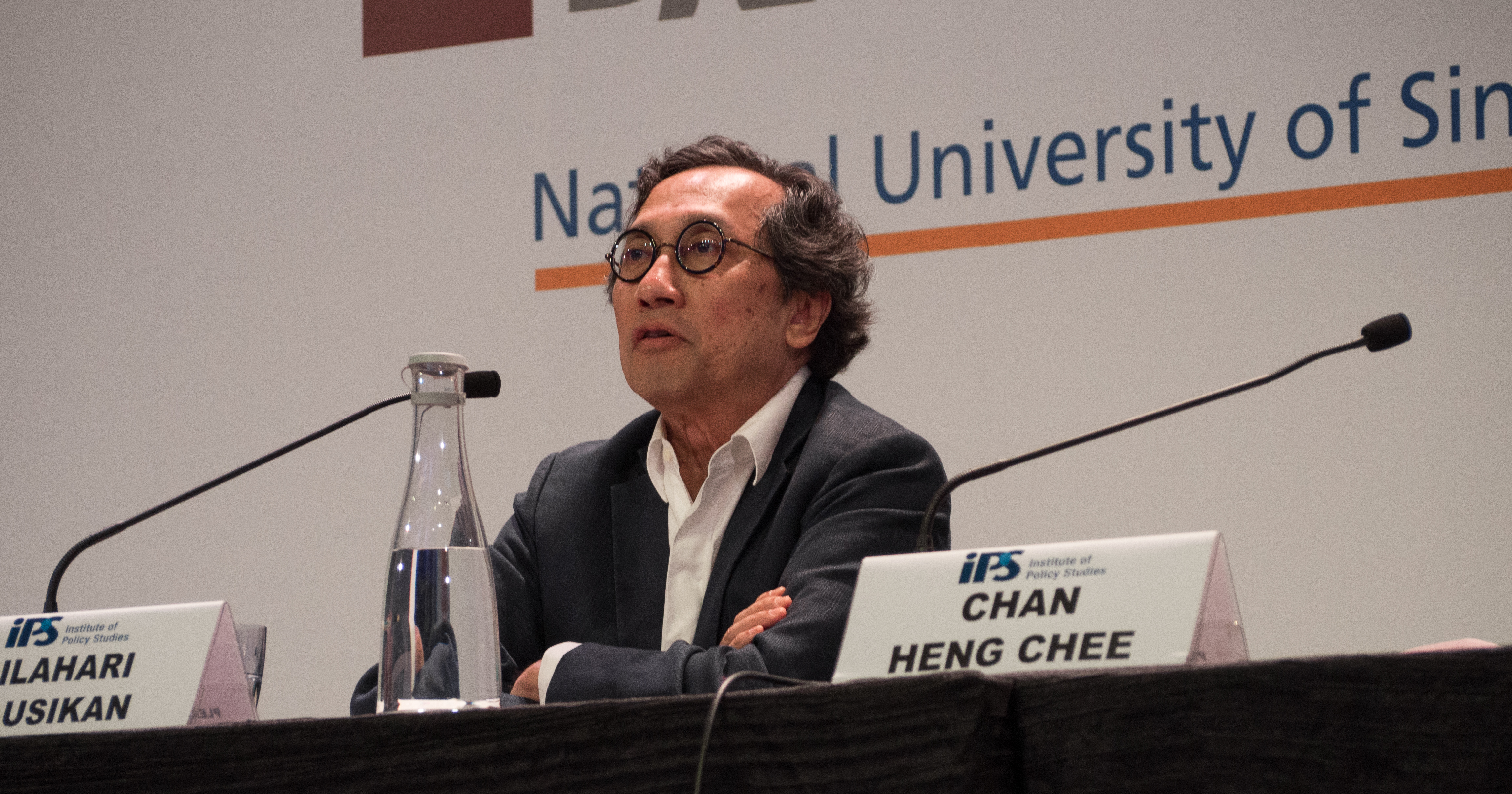While Singapore is in Southeast Asia, it must be more than the region, and it must leverage on the differences it has with its neighbours to be important.
This was the thrust of the speech made by Bilahari Kausikan, the Chairman of the Middle East Institute and former Permanent Secretary of Ministry of Foreign Affairs.
Bilahari was speaking at Singapore Perspectives 2019, organised by the Institute of Policy Studies (IPS).
The retired diplomat said Singapore had to be different and extraordinary for a simple reason.
He said: "If it wasn't, why would anyone want to deal with us rather than our "larger neighbours, who are more well-endowed with natural resources?"
Differences with our neighbours arise out of our social and geographical situations
Bilahari elaborated that Singapore was already an "anomaly" and "outlier" in the region, due to several factors arising out of Singapore's social and geographical situation.
Maintaining these differences, Bilahari added, are what make Singapore unique in the region.
These include:
1. The only state in the region organised along multi-racial meritocracy
Where every other state in the region is organised along religious or ethnic hierarchy, whether formally or informally, Singapore is the only state in the region that is organised according to a multi-racial meritocracy.
This is despite Singapore's status as the only Chinese-majority state outside of China, "in a region where the Chinese are not always welcome", Bilahari added.
Historically, this meant that Singapore was suspiciously regarded as a "third China", where our neighbours would project their suspicions of both the People's Republic of China and their own ethnic Chinese population onto us.
Bilahari added that much effort was devoted by the government in the wake of independence to dispelling this conception, and where the governments of Southeast Asia are concerned, this has been successful.
Even so, the emergence of a separate, distinct identity for Singapore from China must be consciously maintained.
Bilahari pointed out that the country is only 54 years old -- young and ultimately still in the shadow of our neighbours and China.
2. The only city-state with no natural resources within our sovereign territory
Bilahari said this meant Singapore could not take either its international relevance or even its regional relevance for granted.
"Relevance is an artifact that has to be created by human endeavour and having been created, it has to be maintained by human endeavour."
He elaborated that this meant Singapore had to simultaneously "look beyond Southeast Asia" while still being in Southeast Asia.
In the context of Asean, Bilahari added that while the organisation was "an irreplaceable and vital means" of managing regional tensions, Asean was ultimately just a tool, and should not be confused as a "magic nostrum that can cure everything".
As such, the occasional tensions with our neighbours are inevitable since:
"Being extraordinary therefore, does not necessarily make us universally loved. But it cannot be helped, that is the existential condition of being Singaporean."
Can Asean help to resolve bilateral dispute between Singapore & Malaysia?
During the subsequent panel discussion, and in response to a question from Ambassador-at-Large Chan Heng Chee, the chairperson of the panel, Bilahari said he was not optimistic of Asean’s role in resolving the bilateral issue between Singapore and Malaysia.
This is because “Asean is a collective of sovereign states”, which means the organisation “can do no more than what its members agreed by consensus to do”.
He also did not think Malaysia is going to find Asean an appropriate tool or instrument to resolve the bilateral issue with Singapore.
He explained that this is because the issues underlying the bilateral dispute, as well as the reason why they have resurfaced “after so many years”, is “internal to Malaysia”.
Bilahari also said it is due to the incoherence of the new ruling Pakatan Harapan (PH) coalition in Malaysia.
Singapore useful for Malaysia as a rallying point
Bilahari said that fissures within the coalition could be seen within a week of its election victory, when Mahathir made his first appointment for the finance minister, Lim Guan Eng.
The controversy arose as Lim was the first ethnic Chinese finance minister in many years.
He raised further examples of such cracks, like the ones within PH itself, and between PH and UMNO (United Malays National Organisation).
In addition, Bilahari said he does not see Malaysia’s political system becoming "anymore coherent anytime soon", citing what Malaysian Prime Minister Mahathir Mohammad said about PH not being able to keep all their campaign promises as they had not expected to win.
He continued by saying that when politics within Malaysia get incoherent, Singapore becomes a useful "rallying point" for Malaysian leaders to rally their Malay ground, and be “tough” against.
He ended his comments by saying to have a solution to the issues, both sides must want a solution.
In other words, it "takes two to tango".
Unfortunately, he does not see the Malaysian government having an interest in that.
Top image by Andrew Wong
If you like what you read, follow us on Facebook, Instagram, Twitter and Telegram to get the latest updates.
